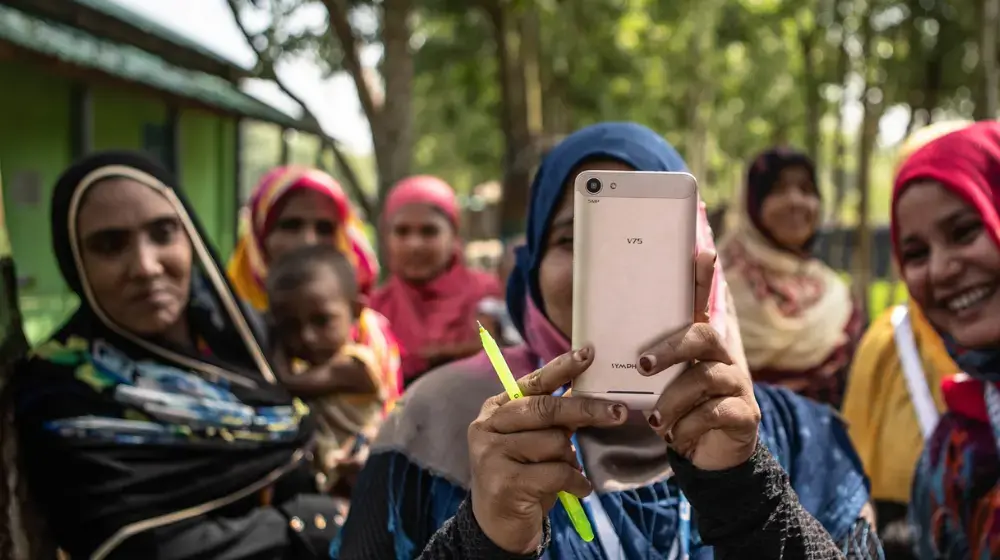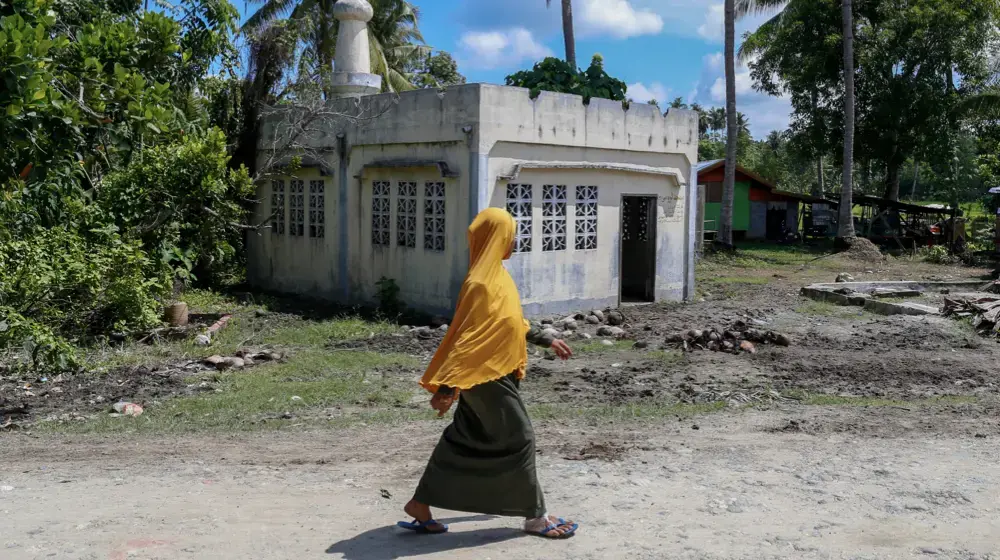As we celebrate World Humanitarian Day, I salute those who respond to crises and work tirelessly to save people in times of deep distress and danger. Today’s theme, “The World Needs More Humanitarian Heroes,” calls attention to the courage and commitment of humanitarians who respond to increasing disasters and persistent conflicts around the world. They put their own lives at risk to save the lives of others.
Today, I pay tribute to humanitarian workers who help pregnant women deliver safely and protect women and girls from gender-based violence. These humanitarian heroes extend hope as they strive to save lives and protect human rights and dignity in extremely difficult situations.
One heroine is Catherine Njeri Makuma, who works as a midwife in Juba, South Sudan, in a UNFPA-supported health centre. She assists women with difficult pregnancies, providing antenatal, obstetric and postnatal care. Connecting women with skilled midwives and doctors, and emergency reproductive health kits and commodities saves their lives and those of their newborns.
Another heroine is Feeza Shraim, a midwife in Gaza, who provided health services for pregnant women until her clinic and home were destroyed in a recent airstrike. In Gaza, at least 11 hospitals, and several clinics and ambulances have sustained damage in the hostilities, limiting residents’ access to essential care.
The work of heroines, such as Catherine and Feeza, cannot be over-estimated. UNFPA estimates that some 30,000 women in South Sudan risk dying in childbirth and 200,000 pregnant women will need urgent care by the end of the year. In Gaza, some 160 deliveries are taking place every day and nearly 46,000 women are pregnant, including 10,000 displaced by the conflict. Shifa Hospital, Gaza’s largest, reported a 15 to 20 per cent increase in premature births linked to the stress of bombardments.
In all regions, women continue to get pregnant and have babies during crises and emergencies. Violence often increases as health and other social services are disrupted. From South Sudan to Syria to Gaza and other crises, UNFPA supports sexual and reproductive health, and the protection of women and girls from gender-based violence.
In Myanmar, Hkawng Gan manages two of the eight UNFPA-operated centres for women and girls in Kachin. She conducts information sessions on gender-based violence, gives support to survivors of sexual abuse, and works with volunteers in camps for internally displaced persons. More than 2,000 women and girls have found much-needed support and protection.
In Iraq, as the security situation worsens, UNFPA is securing health services for some 250,000 pregnant women in eight affected governorates, providing assistance to 85 hospitals and maternity centres and more than 200 primary health clinics.
Iraq is also home to refugees fleeing the three-year-old conflict in Syria. Yusra, a Syrian refugee herself, provides psychosocial support and skills training to refugee women and girls at Yasmin Women’s Space in Domiz Camp. With UNFPA support, more than 3,000 women have gained skills for self-reliance and over 1,500 have received psychosocial counselling and referrals to other specialized services.
Another humanitarian heroine is Ruba Anga, a legal consultant at the Al-Halbouni health clinic in Syria. She provides support and services to women subjected to gender-based violence. An estimated 54,000 women have been put at greater risk of suffering from gender-based violence by Syria’s ongoing conflict.
With rising crises worldwide, more financial and human resources are urgently needed to support humanitarian action and protect human rights and dignity.
Today, I call for increased funding for international humanitarian appeals, especially for efforts to support sexual and reproductive health and protection for women and girls from sexual violence.
The 2014 World Humanitarian Day campaign asks each of us to take action, make a difference and become a Messenger of Humanity. UNFPA is proud to take part and support the work of #humanitarianheroes far and wide.



